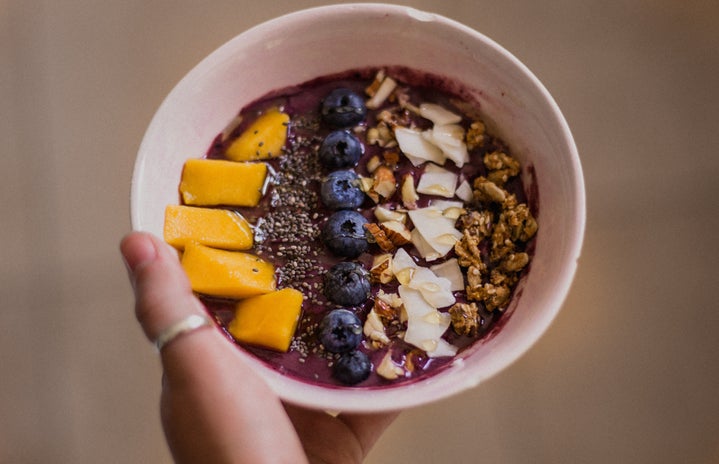This article is written by a student writer from the Her Campus at South Carolina chapter.
It’s safe to assume that a large majority of college students are lacking in more than one health-related place. That being said, I have found that adding vitamins into my everyday routine has absolutely changed how I feel (both mentally and physically). Most of us have too much stress, do not get enough sleep, and most likely consume alcohol- taxing our livers. Here are a few vitamins that have given me amazing results so far:
- Probiotics These supplements contain live microorganisms intended to maintain the “good” bacteria in your body. This can boost your immune system, reduce inflammation, and fight off bad bacteria when necessary. For me, probiotics have helped me become less bloated, especially after long weekends of eating junk. They’ve also helped clear my skin and boosted my overall mood. They replenish the good bacteria in your gut, which is essential after consuming alcohol (which kills this good bacteria) and curing a hangover.
- Multivitamins The main purpose of these are to fill nutritional gaps- which almost every college student has. Even if I eat healthy, there will still always be deficiencies in key nutrients that I need. These are usually not “one size fits all” and you can find different kinds based off of your gender, age, etc.
- Vitamin B These vitamins play a super important role in energy production and support healthy cognitive function- something that every student needs. As college kids, we go through larger amounts of B vitamins during times of stress, so these are helpful in replenishing that. Vitamin B also helps with the well-being of our emotions and memories. I’ve noticed a significant boost in my energy ever since I have starting taking this and now can’t go a day without it.
- Zinc Zinc is naturally found in foods like beans, meat, and fish, meaning that a not-super-healthy diet can lead to a deficiency in this necessary supplement. It’s crucial in supporting your immune system and defending against infections. Not only that, but zinc also has antioxidant properties and has been found to help reduce oxidative stress.
- Fish oil This supplement is an excellent source of omega-3 fatty acids. Recent studies have proven that fish oil has reduced inflammation and anxiety in healthy college students. Not only that, but fatty acids can improve skin health and specific conditions such as acne and eczema.
Getting enough nutrients every day, especially while in college, is a hefty task. By filling in those gaps you optimize your mental and physical health, allowing you to feel your best while at school.


